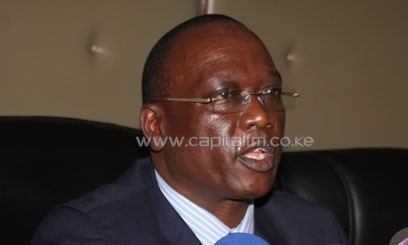
The NCIC had last December raised the red flag over the issue claiming that some individuals were using heavy vernacular parables to hide their hateful messages/FILE
NCIC vice-chairperson Millie Lwanga told journalists on Wednesday morning that the commission would continue discharging its mandate and would not stop singling out situations that risk undermining the spirit of cohesiveness.
She said that the commission had already issued guidelines on some of the items that bordered hate speech, and reminded politicians of the highly sensitive nature of debates surrounding land.
“We are saying people must campaign… people must engage in issues but they must be guarded as they do this. We are not saying it is going to be easy but we are asking people to be cautious because Kenya ni yetu and we must put Kenya kwanza,” she argued.
Although she noted the need to discuss such topics because they were part of the country’s journey towards healing past injustices, Lwanga said that they must be gauged to avoid fanning ethnic tensions.
“They must be guarded as they carry out these conversations so that Kenyans do not get emotionally flared up in the wrong direction,” she noted.
Lwanga at the same time took issue with some of the distorted interpretations of hate speech, as campaigns hit fever pitch.
She said that some of those misconceptions were to blame for some of the concerns raised against the commission and its mandate.
“You will find for example that people are defining issues of discrimination on the basis of gender as hate speech and people are defining insults as hate speech,” she said.
The commission will on Thursday release the results of a survey conducted on the use of coded language and stereotypes to stir ethnic disharmony as politicians rally for support.
The NCIC had last December raised the red flag over the issue claiming that some individuals were using heavy vernacular parables to hide their hateful messages.
Lwanga, at the time, said that the commission’s officers at the ground were having a difficult time trying to break down the messages contained in such statements.
“Kenyans have become very aware that they are being monitored, especially politicians, so they are coding their languages and are using heavy vernacular proverbs that make it hard for the police and NCIC monitors to quickly identify hate speech,” she said.
The then deputy police spokesman Charles Owino also said that the force would deploy officers who were conversant with such languages in every region of the country to contain the situation and stop it from spiralling out of control.
“We will closely work with the National Cohesion and Integration Commission (NCIC) and post individuals who understand those languages in those particular regions just for the purpose of this election,” he said.








































